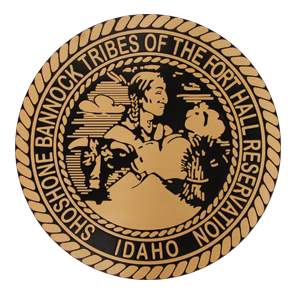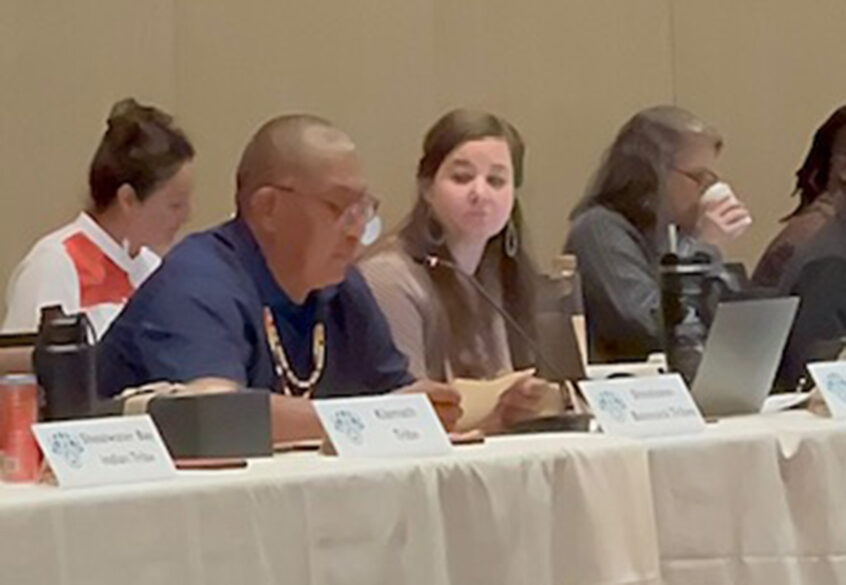Fort Hall Business Council Sergeant At Arms, Ronald Todd Appenay, is an alternate Health Delegate speaking on behalf of the Shoshone-Bannock Tribes at the Northwest Portland Area Indian Health Board Quarterly meeting on September 30. He delivered his remarks to Senior Advisor to the Secretary of HHS, Mark Cruz and attendees. (Submitted photo)
By ROSELYNN YAZZIE
OFFICE OF PUBLIC AFFAIRS
AUBURN, Wash. – At the Northwest Portland Area Indian Health Board Quarterly Meeting September 29 to October 2, the Shoshone-Bannock Tribes called for greater accountability and renewed federal action to address staffing shortages and uphold trust obligations in Tribal health care.
Representing the Shoshone-Bannock Tribes were Tribal Health Director Travis Martin, Health Administrator Norma Wadsworth, and the alternate Health Delegate, Fort Hall Business Council Sergeant at Arms, Ronald Todd Appenay. The meeting, hosted by the Muckleshoot Tribe, brought together Tribal and federal leaders to strengthen collaboration, ensure accountability, and advance Tribal self-governance in health services.
During his statement, Councilman Appenay emphasized the urgent need to expand Tribal self-governance within federal health programs and to address ongoing Indian Health Service (IHS) staffing shortages that continue to impact Tribal members. He urged the U.S. Department of Health and Human Services (HHS) and IHS to lift the current hiring freeze, noting that more than 1,100 employees have left the agency since January, and only 400 have been hired, resulting in a national vacancy rate approaching 30 percent.
“The federal government has a trust and treaty obligation to ensure our people receive quality health care,” said Councilman Appenay. “These meetings are an opportunity to hold our partners accountable and to remind them that self-governance is a fulfillment of those promises and not a replacement for them.”
Appenay also urged federal officials to launch self-governance demonstration projects across all divisions of HHS and to pursue legislative reforms that would provide Tribes with direct, stable funding rather than temporary, competitive grants.
Federal representatives, including Senior Advisor to the Secretary of HHS, Mark Cruz and Portland Area IHS Director Admiral Marcus Martinez, acknowledged that tribes have continuously proven to provide care to their own communities better than what the federal government can do.
“All of these regular meetings demonstrate transparency and dedication to improving community health outcomes. The in-person meeting provided meaningful dialogue and encouraged shared responsibility in advancing the overall health and well-being of the Tribal membership,” said Martin.
He added they also requested Idaho consultation with the state and the Idaho tribes for the new Rural Health funding dispersed to the states.
The Shoshone-Bannock delegation also met with Tribal Health Directors and Executives from the Seattle area, who shared successes in advancing tribal sovereignty and improving access to care through expanded self-governance initiatives.
According to the Shoshone-Bannock Tribes, they will continue to advocate for policies that will ensure that every Tribal member has access to quality health care.

